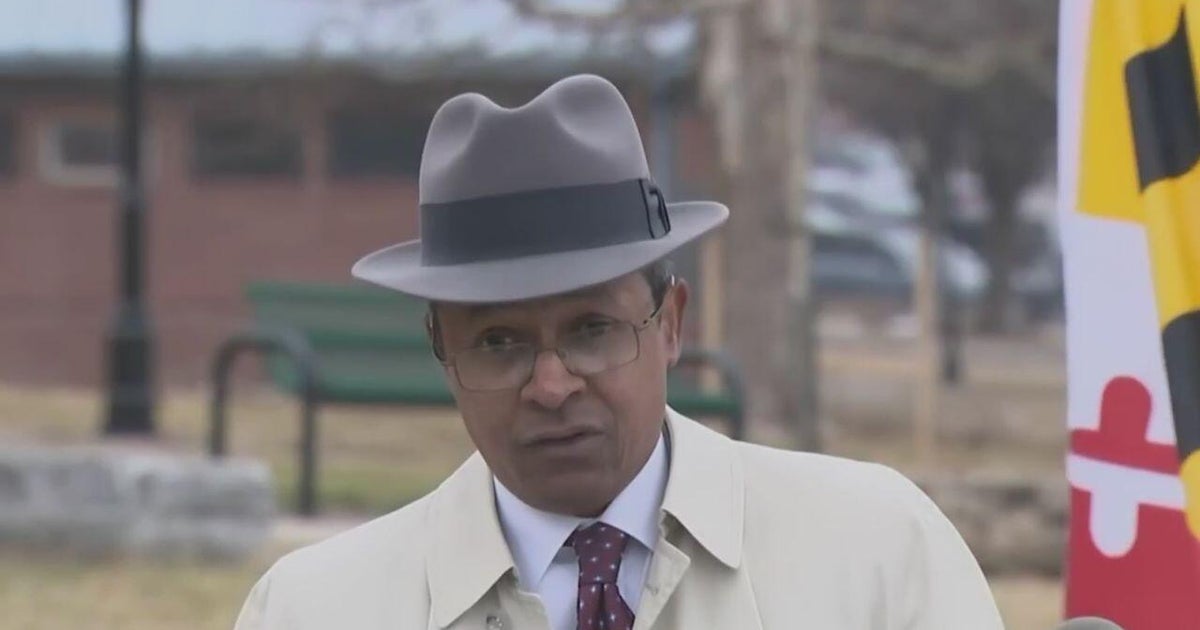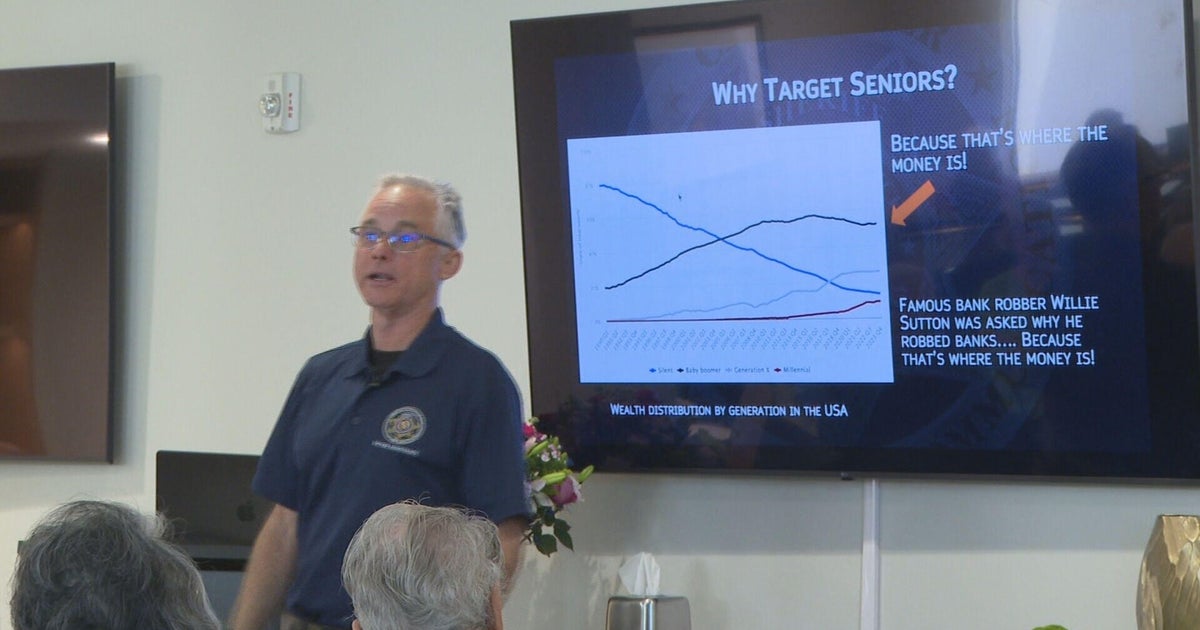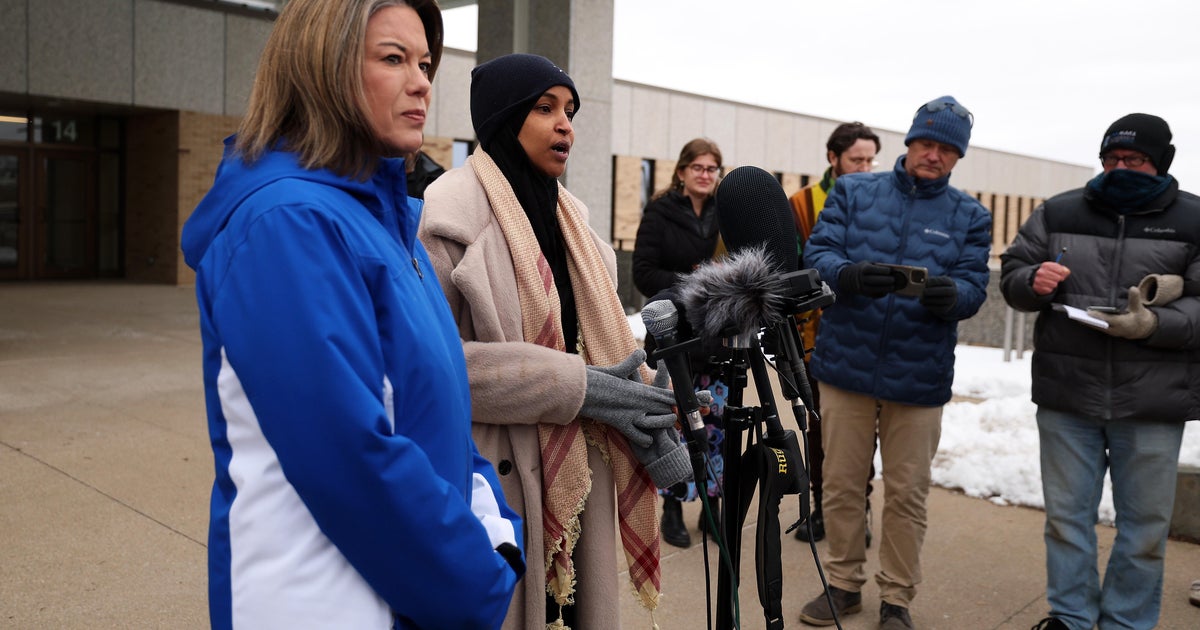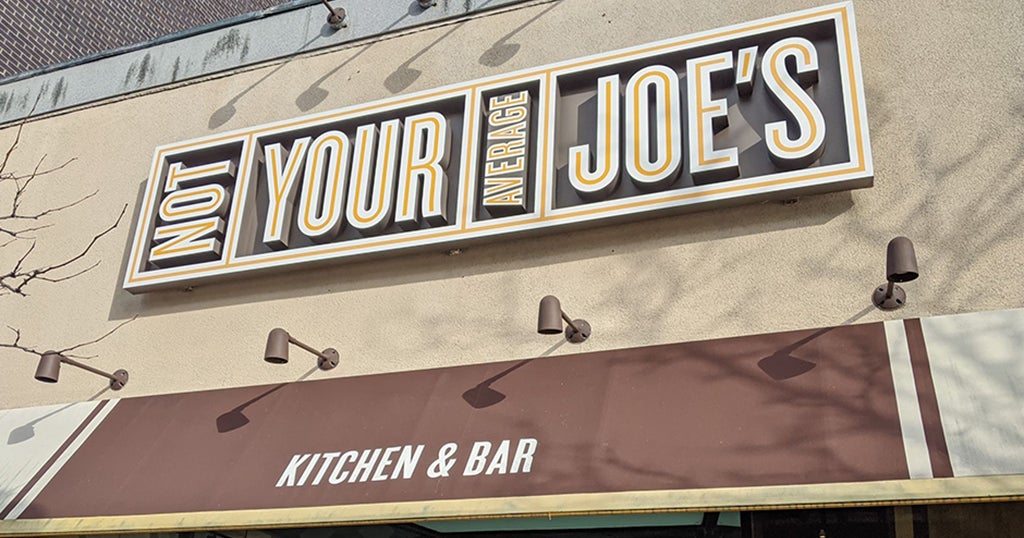Mass. U.S. Senate Hopefuls Face Off In Debate
NEEDHAM (AP) — The five candidates hoping to fill the U.S. Senate seat formerly held by John Kerry clashed in the first televised debates of the campaign Wednesday, as they sparred over the federal deficit, health care, Washington gridlock and other issues.
The Republicans — former U.S. Attorney Michael Sullivan, businessman Gabriel Gomez and state Rep. Daniel Winslow — were the first to engage in a 30-minute debate at the WCVB-TV studios, followed by Democratic U.S. Reps. Edward Markey and Stephen Lynch.
Asked about the federal health care law championed by President Barack Obama, Markey called his vote for the law the "proudest vote of his career" and criticized Lynch for voting against it.
"Steve, when that vote came up you were wrong when you were needed most," Markey told Lynch, saying the law would help provide health care for poor children, seniors and people with pre-existing medical conditions.
But Lynch said the final version of the bill was flawed for several reasons. He said it levied new taxes and gave too much power to insurance companies.
"It was like a hostage situation where we not only paid the ransom but we let the insurance companies keep the hostages," Lynch said, adding that if elected to the Senate he would not vote to repeal the law but "would vote to fix it."
In their debate, all three Republicans said they would vote to repeal the health care law and allow states to set their own health care policies. They said health care decisions are best left to the states like Massachusetts, which passed a sweeping health care overhaul in 2006.
On abortion, Lynch reiterated that he considered himself "pro-life" but did not support efforts to overturn the landmark Roe v. Wade decision that legalized abortion, and said he fought for federal funding for Planned Parenthood. Lynch then tried to turn the tables on Markey, pointing out that early in Markey's career he supported a constitutional amendment to outlaw abortion.
"For 30 years, I have been a consistent supporter of a woman's right to choose," responded Markey, who was first elected to the House in 1976 and shifted his position to abortion rights in the early 1980s.
The three Republicans split on abortion, with Sullivan and Gomez describing themselves as "pro-life" and Winslow describing himself as "pro-choice."
"There are two lives involved. There is the woman's life and the unborn child's life," Sullivan said, adding that the nation should try to streamline the adoption process.
Gomez cited his Catholic faith as the basis for his opposition to abortion, but he also called Roe v. Wade "settled law" and said he's not going to Washington to change the 1973 U.S. Supreme Court ruling that legalized abortion.
All three Republicans said they would support the federal Defense of Marriage Act, which was argued before the U.S. Supreme Court on Wednesday. The Democrats were not asked about gay marriage.
Lynch, who was first elected to the House in 1991, also criticized Markey for voting for the 2009 Dodd-Frank federal financial reform law, which he said bailed out the Wall Street banks but did nothing to help ordinary taxpayers.
But Markey said the bailout came at a time when the nation's financial system was at risk of collapse and that a "financial calamity" would have occurred if the law had not passed.
The Republican candidates were asked about Social Security, and all three said the program should be protected for those receiving benefits or nearing benefits.
But Gomez suggested the program could be "means tested," and the retirement age increased by one month each year over the next 24 years, which would ultimately increase the retirement age by two years.
Winslow said Congress has shown itself "incapable of making complicated actuarial decisions" and said a bipartisan commission should be named to come up with a comprehensive proposal to stabilize the program. He also said that while means testing should be on the table, Social Security is an insurance program, not a welfare program.
Sullivan said he both opposed means testing and deferring the decision to a "nonelected committee." He said as senator he would be willing to make the tough decisions needed to fix Social Security.
Though better known than the Republicans because of their years in Congress, Markey and Lynch also had an opportunity to introduce themselves to a broader cross-section of Massachusetts voters who do not live in their respective House districts and know little about their records.
Debate moderator R.D. Sahl of New England Cable News asked both Democrats how they could break gridlock in Washington, given that both were already members of Congress.
Markey pointed to a series of legislative accomplishments, including his work on gun control and breaking up the monopoly of telecommunications companies, and said he worked cooperatively with Republicans to get those and other bills passed.
"Anyone who knows me knows I take on the top issues and I get results," he said.
Lynch, a conservative Democrat, cast himself as an independent thinker who would not follow party leaders blindly.
"I don't work for Nancy Pelosi and I won't work for Harry Reid," he said, referring to the respective Democratic leaders of the House and Senate.
The party primaries will be April 30; the special election is set for June 25.
___
AP writer LeBlanc contributed from Boston.
Copyright 2013 The Associated Press.







